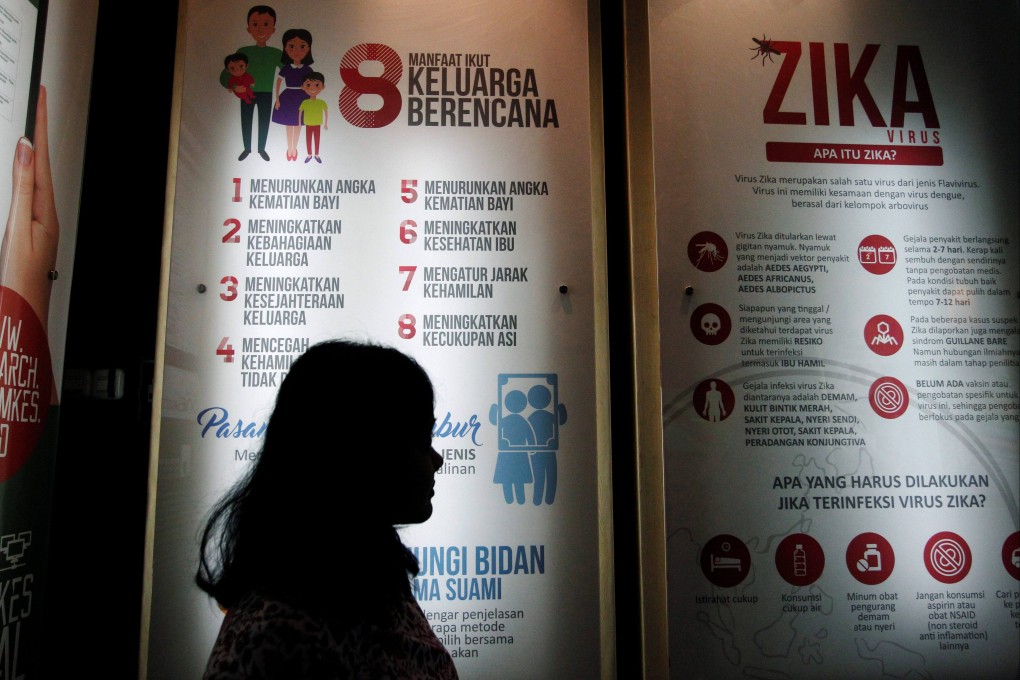US scientists infect volunteers with Zika in hunt for vaccines, treatments
- Researchers hope to learn more about the virus, which can cause devastating birth defects, such as a child being born with an abnormally small head and brain
- Though worldwide infections have dwindled, climate change is likely to boost the spread of the disease, which is already established in 91 countries

Researchers in the United States have shown for the first time they can safely and effectively infect human volunteers with Zika virus, a step towards learning more about the disease and developing vaccines and treatments.
The study – known as a “controlled human infection model” – has previously been controversial for Zika because of the risks to participants and lack of treatments.
But US regulators and the World Health Organization ruled the new model, developed by a team at the Johns Hopkins Bloomberg School of Public Health, was safe and scientifically important.
Zika is a viral infection spread by mosquitoes, which is usually mild or asymptomatic.

But a major outbreak in the Americas in 2015 and 2016 showed it can be dangerous for pregnant women and fetuses, causing devastating birth defects such as microcephaly, a disorder in which a child is born with an abnormally small head and brain.
There are no vaccines or treatments, and the outbreak in the Americas ended before new ones could be fully tested. Infections have dwindled worldwide since, with about 40,000 reported last year from that region.